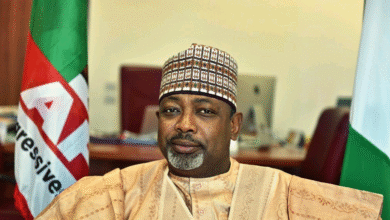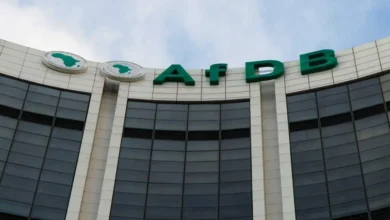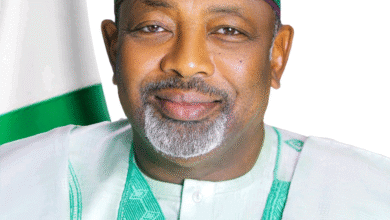Nigeria Can Generate N150bn Annual Income from Livestock Exports – NEPC
Nigeria Can Generate N150bn Annual Income from Livestock Exports – NEPC

The Executive Director, Nigerian Export Promotion Council (NEPC), Nonye Ayeni, says Nigeria can generate over N150bn annually through livestock exports if it complies with international livestock market standards.
Ayeni said this at the on-going Value Chain Enhancement and Infrastructure Clinic for Effective Livestock Supply Chain and Innovative Market Orientation on Wednesday in Abuja.
The clinic was organised by the Livestock Productivity Enhancement and Resilience Support Project (L-PRES).
Ayeni, represented by Mr Macpherson Ileogben, Deputy Director, Product Development, NEPC, said there was need to enhance the value chain to leverage vast opportunities in the livestock sub-sector which included establishing processing plants for meat, dairy and hides.
According to him, this could be through a multi-dimensional approach including research, infrastructure and policies while fostering collaboration between the government, private sector and local communities.
Ayeni said the approach would help in addressing quality concerns and implementing an animal traceability system which remains crucial for accessing the global market.
Ayeni who identify Nigeria as one of Africa’s top producer and exporters of leather, said there was high demand in Europe, Asia and North America.
The ED said in order to double the country’s exports and meet market demands, stakeholders must collectively tackle the prevailing issues in the sector.
“Agriculture remains a linchpin of Nigeria’s economy, contributing about 25 per cent to the nation’s GDP and employing much of the country’s workforce.
“The livestock subsector which is subsumed in agriculture/agribusiness contributes significantly to the economy and food security by providing protein, generating employment and creating wealth.
“It is quite strategic and known to produce meat, dairy and leather products“NEPC is committed to this course and is always ready to promote livestock product export in Nigeria,’’Ayeni said.
Mr Aliyu Sheriff, Special Assistant to the President on Export Expansion, Office of the Vice President, said the livestock sector played an important role in Nigeria’s economy and food security.
He said it contributes significantly to agricultural GDP and provides livelihood for a number of Nigerians in rural areas.
Sheriff further identified the sector as providing an avenue for economic diversification on foreign exchange earnings and sustainable growth.
“We give credit to President Bola Tinubu for fully supporting the sector and creating a new ministry and see how e can tap into the opportunities that lies in the sector.
“Brazilian delegations were here a month ago to see how they can invest in the country’s livestock sector, these are all avenues for Nigeria to tap into the sector and diversify our economy and generate more foreign exchange.
“This is an opportunity to create jobs for many Nigerians and empower our youth,’’ he said.
Mr Ibrahim Usman, President, Nigeria-Saudi Chamber of Commerce, said there was a need to develop the sector very well to generate lots of foreign earnings for the country.
Usman said livestock sector development was not only for local consumption or Nigeria food security but also for external and export to enable the country to generate foreign exchange.
“The only way to do it is through investment, the Federal Government cannot do it alone, neither Nigeria investors but if we open the market internationally especially the Saudis which import all their produce.
“They need the red meat, goat and sheep, so this is extremely important and market access is a key aspect of the L-PRES project which will bring foreign exchange to Nigeria.
“Saudis import most of their food, therefore Nigeria is an excellent ground for export of the produce because we need the foreign exchange and new investment in areas of agriculture.
“We develop our own internal food security but we must also create an avenue for people to invest in the country to bring fresh equipment and technology to aid our human capital status,’’he said.
NAN




